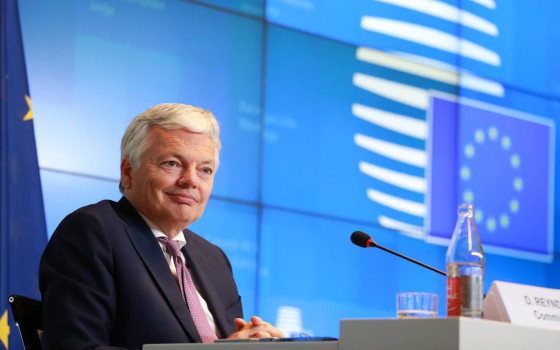
European Commission: 40% of online shopping sites rely on manipulative practices to exploit consumers' vulnerabilities and deceive them. Publishing the results of a survey of sites that use "dark patterns"

- Europe and Arabs
- Monday , 30 January 2023 22:52 PM GMT
Brussels: Europe and the Arabs
The European Commission and national consumer protection authorities of 23 Member States, Norway and Iceland (CPC Network), have released the results of an examination ("survey") of retail locations. This examination covered 399 online retailer stores selling products ranging from textiles to electronic goods.
It also focused on three specific types of manipulative practices that are often known to lead consumers to make choices that may not be in their best interests, so-called "dark patterns".
These include: Fake countdown timer. Web interfaces designed to lead consumers to purchases, subscriptions, or other options; and hidden information.
The investigation showed that 148 websites contained at least one of these three dark patterns.
Commissioner for Justice, Didier Reynders, said: "Our examination shows that nearly 40% of online shopping sites rely on manipulative practices to exploit or deceive consumers' vulnerabilities. This behavior is clearly wrong and contrary to consumer protection. Today we already have binding tools to help Addressing such issues I call on national authorities to make use of their enforcement capabilities to take relevant action and fight these practices. In parallel, the Commission is reviewing all consumer legislation for suitability for the digital age, including assessing whether dark patterns are adequately covered."
42 sites that use fake countdown timers with deadlines for purchasing certain products;
54 sites directed consumers toward certain options—from subscriptions to more expensive products or delivery options—either through visual design or language selection;
70 websites were found to hide important information or make it less visible to consumers. For example, this included information regarding delivery costs, the composition of products, or about the availability of a cheaper option. There were 23 websites that were hiding information with the intent of manipulating consumers into entering a subscription;
The survey also included apps from 102 of the websites examined, 27 of which also posted at least one of the three categories of dark patterns.
The national authorities will now contact the relevant merchants to correct their websites and take further action if necessary, in accordance with their national procedures.
In addition to this sweep and as part of its broader efforts to address dark patterns to complement the CPC Network's work, the Commission will also be reaching out to online traders identified in the 2022 study on unfair trading practices in the digital environment to ask them to rectify the issues.
In addition, the Commission is collecting observations on three consumer protection directives, to determine whether they guarantee a high level of protection in the digital environment: the Unfair Business Practices Directive, the Consumer Rights Directive and the Unfair Contract Terms Directive. Public consultation open until February 20, 2023.
The Consumer Protection Agency (CPC) is a network of authorities responsible for enforcing consumer protection laws in the European Union. To address cross-border issues, their actions are coordinated at the EU level
National authorities are responsible for enforcing consumer protection laws in the European Union. Thanks to the updated Consumer Protection Cooperation Regulation, they now have stronger powers to detect wrongdoing and take swift action against fraudulent traders.
The new Digital Services Act will ban dark patterns on online platforms. And it will complement rules such as the Unfair Business Practices Directive or the General Data Protection Regulation, ensuring that no regulatory gap is left for platforms to engage with users.
Furthermore, the new Directive on Improving Enforcement and Modernization of Consumer Protection Rules in the Union has modified existing EU consumer law tools by further enhancing transparency for consumers when purchasing from online marketplaces.












No Comments Found